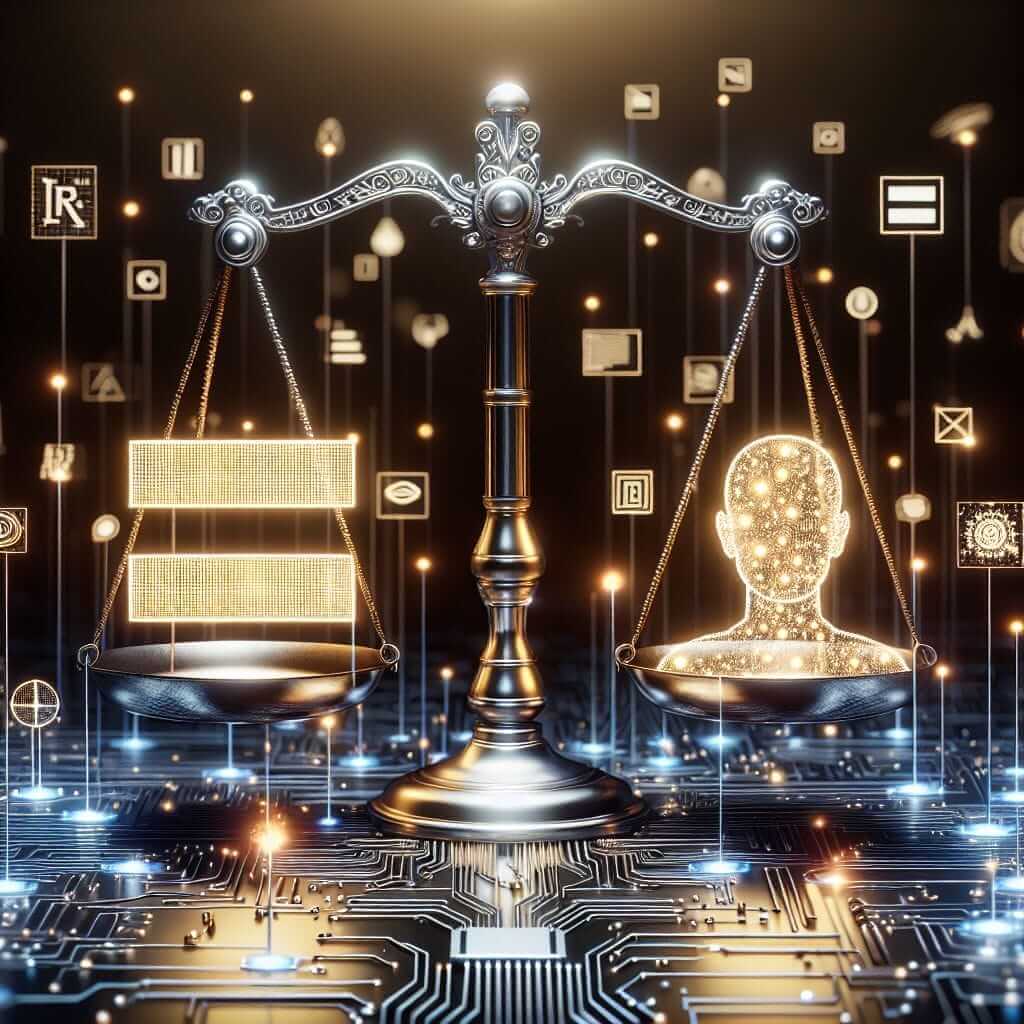The Reading section of the IELTS exam is designed to test a candidate’s ability to interpret and analyze written texts in English. Questions can range from multiple-choice to matching headings, and identifying factual information. As advancements in AI technology continue to shape our world, the implications of AI on human rights are becoming a critical topic. With growing interest in this subject, it is plausible that future IELTS exams might feature reading passages on the impacts of AI on human rights.
Table Of Contents
- Practice Reading Passage: Medium Text
- Practice Passage
- Practice Questions
- Multiple Choice
- Identifying Information (True/False/Not Given)
- Matching Headings
- Sentence Completion
- Answer Key
- Multiple Choice
- Identifying Information (True/False/Not Given)
- Matching Headings
- Sentence Completion
- Common Mistakes
- Vocabulary
- Grammar Note
- Tips for High IELTS Reading Scores
Practice Reading Passage: Medium Text
The practice reading passage below is based on the topic “What are the implications of AI on human rights?” Use this passage to practice and enhance your reading skills for the IELTS exam.
Practice Passage
The rapid development of Artificial Intelligence (AI) has revolutionized various industries, from healthcare to finance. However, as AI systems become more prevalent, they raise significant human rights concerns. One of the primary issues is privacy. AI technology is capable of collecting, analyzing, and interpreting vast amounts of personal data, often without the knowledge or consent of individuals. This raises questions about the right to privacy and the potential for misuse of sensitive information.
Another significant concern is bias and discrimination. AI systems often rely on data sets that may contain biases, which can lead to discriminatory outcomes. For example, an AI algorithm used in hiring processes might favor certain demographic groups over others, perpetuating existing inequalities. This directly challenges the principle of equality and non-discrimination, fundamental aspects of human rights.
AI’s impact on employment is another contentious issue. As AI systems become more capable, there is a growing fear that they will replace human workers, leading to job displacement and economic inequality. While some argue that AI will create new job opportunities, the transition period could result in significant hardship for many workers whose skills become obsolete.
Moreover, AI raises concerns about accountability and transparency. When AI systems make critical decisions—such as in criminal justice or healthcare—there is often a lack of clarity about how these decisions are made. This opacity can undermine trust and lead to accountability challenges, as it becomes difficult to determine who is responsible when things go wrong.
Finally, the development and deployment of AI technologies often occur with minimal regulation. This lack of oversight can result in harmful consequences, such as the development of autonomous weapons or the use of AI for mass surveillance, both of which pose severe threats to human rights.
To mitigate these concerns, comprehensive regulatory frameworks are needed to ensure that AI technologies are developed and used in ways that respect human rights. This includes establishing guidelines for data protection, promoting transparency and accountability, and ensuring that AI systems are used to enhance rather than undermine human dignity.
Practice Questions
Multiple Choice
-
What is one main human rights concern mentioned in the text regarding AI’s ability to collect data?
- A. Efficiency
- B. Privacy
- C. Cost
- D. Speed
-
How can biased data sets affect AI systems, according to the passage?
- A. By increasing operational costs
- B. By leading to discriminatory outcomes
- C. By improving system accuracy
- D. By decreasing data collection
Identifying Information (True/False/Not Given)
-
AI algorithms in hiring processes always eliminate discrimination.
- A. True
- B. False
- C. Not Given
-
The text states that AI will create more jobs than it replaces.
- A. True
- B. False
- C. Not Given
Matching Headings
-
Match the correct heading to each paragraph:
- Paragraph 1: ___
- A. Employment and Economic Impact
- B. Privacy Concerns
- C. Regulatory Frameworks
- Paragraph 2: ___
- A. Bias and Discrimination
- B. Technological Advancements
- C. Accountability and Transparency
- Paragraph 1: ___
Sentence Completion
- One solution proposed in the passage to address the threats AI poses to human rights is to __.
Answer Key
Multiple Choice
- B. Privacy
- B. By leading to discriminatory outcomes
Identifying Information (True/False/Not Given)
- B. False
- C. Not Given
Matching Headings
-
- Paragraph 1: B. Privacy Concerns
- Paragraph 2: A. Bias and Discrimination
Sentence Completion
- One solution proposed in the passage to address the threats AI poses to human rights is to establish comprehensive regulatory frameworks.
Common Mistakes
When dealing with reading passages related to complex subjects such as AI and human rights, candidates often misinterpret the nuanced arguments and fail to identify the underlying concerns. It’s crucial to focus on the specific claims made and the evidence provided to support them.
Vocabulary
- Prevalent (adj): /ˈprɛvələnt/ Being widespread; commonly occurring.
- Opacity (n): /oʊˈpæsɪti/ The condition of lacking transparency; not clear or see-through.
- Inequality (n): /ˌɪniˈkwɑːləti/ Difference in size, degree, circumstances; lack of equality.
- Transparency (n): /trænsˈpɛrənsi/ The quality of being done in an open way without secrets.
Grammar Note
Relative Clauses: These clauses provide additional information about a noun. Example from the passage: “AI systems, which are capable of collecting vast amounts of personal data, raise significant human rights concerns.”
Tips for High IELTS Reading Scores
- Time Management: Allocate your time wisely to ensure you can answer all questions.
- Skimming and Scanning: Develop these skills to quickly locate information in the passage.
- Practice Regularly: Regular reading practice of diverse topics will help you improve your speed and comprehension.
- Understand Question Types: Familiarity with different question types can aid in more efficient answering.
- Build Vocabulary: A robust vocabulary helps in understanding complex texts more easily.
 Implications of AI on Human Rights
Implications of AI on Human Rights
By focusing on these strategies and using the practice passage and questions provided, candidates can improve their reading skills and enhance their readiness for the IELTS exam.


